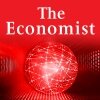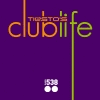Nova Vodcast | Pbs
Science & Medicine
NOVA brings you short video stories from the world of science, including excerpts from our television programs, video dispatches from producers and correspondents in the field, animations, and much more. For more science programming online and on air, visit NOVA's Web site at http://www.pbs.org/nova and watch NOVA broadcasts Tuesday nights on PBS. Please note that this feed requires QuickTime 7. Free upgrade available at apple.com/itunes. (Author: WGBH Science Unit)
| Subscribe | Subscribe via iTunes™ |
| Author | WGBH Science Unit |
| Feed | http://broadband.wgbh.org/nova/rss/nova-vodcast-it.xml |
| Site | http://www.pbs.org/wgbh/nova/rss/vodcast-it/redir/wgbh/nova/index.html |
| Badge |

|
Recent episodes from Nova Vodcast | Pbs
-
Published: Aug 8, 08Roger Hanlon of the Marine Biological Laboratory at Woods Hole introduces us to one of his favorite cephalopods, the cuttlefish. This remarkable creature, a cousin of squid and octopus, can change the color, pattern, and even texture of its skin in the blink of an eye.Video podcast produced by Melissa Salpietra and Susan K. Lewis. Edited by Melissa Salpietra. Interview and original footage produced by Julia Cort. NOVA is produced by WGBH in Boston. Funding for NOVA is provided by Exxon Mobile, D
-
Published: Jun 23, 08We can't see dark matter, and some skeptics doubt its existence, but many scientists think it makes up 20-some percent of our universe. Astronomer Doug Clowe explains how the Bullet Cluster, a group of galaxies billions of light years away, may shed some light on this mysterious stuff.Don't miss the new season of NOVA scienceNOW, airing every Wednesday at 9pm starting June 25 on PBS.Watch past episodes of the program, try out interactives, and more on our Web site: http://www.pbs.org/nova/scienc
-
Published: Apr 18, 08The 'Car Talk' brothers, Tom and Ray Magliozzi, visit the UC Davis lab of Andy Frank, inventor of the plug-in hybrid, to learn more about one of the possible ways we can transition our transportation system of off oil.Watch NOVA every Tuesday night on PBS. Or join us online at http://www.pbs.org/novaFunding for NOVA is provided by David H. Koch, the Howard Hughes Medical Institute, the Corporation for Public Broadcasting, and public television viewers.To learn more, visit http://www.pbs.org/nova
-
Published: Apr 16, 08Open content is material that anyone can use, free of charge, with only a few restrictions. The content, in this case, is raw footage shot for NOVA's "Car of the Future" documentary. We at NOVA hope it will fuel your creativity and foster a sharing of ideas. It's our latest way of highlighting the "Public" in PBS.http://www.pbs.org/nova/car/openWatch NOVA every Tuesday night on PBS. Or join us online at http://www.pbs.org/novaFunding for NOVA is provided by David H. Koch, the Howard Hughes Medic
-
Published: Feb 21, 08Join paleontologist Mark Norell of the American Museum of Natural History as he travels to Liaoning, China in search of the region's spectacularly preserved fossils.To learn more, visit http://www.pbs.org/nova/microraptorWatch NOVA every Tuesday night on PBS. Or join us online at http://www.pbs.org/novaFunding for NOVA is provided by David H. Koch, the Howard Hughes Medical Institute, the Corporation for Public Broadcasting, and public television viewers.
-
Published: Jan 30, 08Zahi Hawass is Egypt's Secretary General of the Supreme Council of Antiquities. He is an expert on Egyptian mummies. To see the complete story of the missing mummy of Rameses I, watch NOVA's "The Mummy Who Would Be King" on PBS on February 5 at 8 p.m.This excerpt was produced by Gail Willumsen and Jill Shinefield. NOVA is produced by WGBH in Boston. Funding for NOVA is provided by David H. Koch, the Howard Hughes Medical Institute, the Corporation for Public Broadcasting, and public television v
-
Published: Jan 23, 08Ancient Greek architects were on to something when they built the Parthenon with subtle curves and no right angles. While it remains debatable, some scholars argue that these features were intended to counter the brain's tendency to see optical illusions. http://www.pbs.org/nova/parthenonWatch NOVA every Tuesday night on PBS. Or join us online at http://pbs.org/nova. "Secrets of the Parthenon" is a Providence Pictures production for NOVA and WGBH Boston in association with Studio International a
-
Published: Jan 10, 08MIT physicist Daniel Kleppner explains how matter changes as it is reduced in temperature and nears -459.67 degrees F, or absolute zero. Watch NOVA's "The Race for Absolute Zero" airing January 15 on PBS. See a related program, "The Conquest of Cold," online now at pbs.org/nova/zeroCatch NOVA every Tuesday night on PBS. Or join us online at pbs.org/nova. Absolute Zero is a production of Windfall Films Ltd. and Meridian Productions for TPT/Twin Cities Public Television and WGBH/NOVA in associatio
-
Published: Dec 21, 07We can't see dark matter, and some skeptics doubt its existence, but many scientists think it makes up 20-some percent of our universe. Astronomer Doug Clowe explains how the Bullet Cluster, a group of galaxies billions of light years away, may shed some light on this mysterious stuff. Don't miss NOVAscienceNOW, airing every Wednesday night during the summer of 2008 on PBS.Watch past episodes of the program, try out interactives, and more on our Web site: www.pbs.org/nova/sciencenowVideo podcast
-
Published: Nov 20, 07At the present-day excavation site at Jamestown, archeologists are uncovering evidence of intriguing, harmonious relationships between the native Powhatan people and the English colonists. Other evidence, hidden in tree rings, hints at why hostilities between the two cultures mounted. Watch NOVA's "Pocahontas Revealed," airing November 27 on PBS.Watch NOVA every Tuesday night on PBS. Or join us online at http://www.pbs.org/nova Original footage produced by Lone Wolf Documentary Group. NOVA is pr
-
Published: Nov 20, 07At the present-day excavation site at Jamestown, archeologists are uncovering evidence of intriguing, harmonious relationships between the native Powhatan people and the English colonists. Other evidence, hidden in tree rings, hints at why hostilities between the two cultures mounted. Watch NOVA's "Pocahontas Revealed," airing November 27 on PBS.Watch NOVA every Tuesday night on PBS. Or join us online at http://www.pbs.org/nova Original footage produced by Lone Wolf Documentary Group. NOVA is pr
-
Published: Nov 16, 07In Dover, Pennsylvania, teachers and parents took a stand against the school board's push to teach intelligent design in science classes. What resulted was a landmark U.S. court case that reverberated throughout the small community, pitting neighbor against neighbor. Watch NOVA's "Judgment Day: Intelligent Design on Trial" online now at http://www.pbs.org/nova/id/program.htmlWatch NOVA every Tuesday night on PBS. Or join us online at http://www.pbs.org/nova"Judgment Day: Intelligent Design on T
-
Published: Nov 9, 07Paleontologist Neil Shubin of the University of Chicago and the Field Museum explains how a 375 million-year-old fossil called Tiktaalik bridges the gap between primitive fish and four-legged animals. Found in the Canadian Arctic, Tiktaalik offers strong supporting evidence of Darwin's theory of evolution. Don't miss the broadcast of NOVA's "Judgment Day: Intelligent Design on Trial," airing November 13th on PBS.Watch NOVA every Tuesday night on PBS. Or join us online at pbs.org/nova. "Judgment
-
Published: Oct 31, 07NOVA visits David Wake, a renowned evolutionary biologist at the University of California, Berkeley, as he explains why members of the same species of California salamander look and behave so differently. It's a case study of Darwin's theory of evolution by natural selection, and an example, Wake says, that Darwin himself would have loved. Don't miss the broadcast of NOVA's "Judgment Day: Intelligent Design on Trial," airing November 13th on PBS.Watch NOVA every Tuesday night on PBS. Or join us
-
Published: Oct 31, 07NOVA visits David Wake, a renowned evolutionary biologist at the University of California, Berkeley, as he explains why members of the same species of California salamander look and behave so differently. It's a case study of Darwin's theory of evolution by natural selection, and an example, Wake says, that Darwin himself would have loved. Don't miss the broadcast of NOVA's "Judgment Day: Intelligent Design on Trial," airing November 13th on PBS.Watch NOVA every Tuesday night on PBS. Or join us
Advertisement
Popular Podcasts
-
Health
-
Health
-
Music
-
News
-
Sports & Recreation
-
Sports & Recreation
-
Music
-
Music














